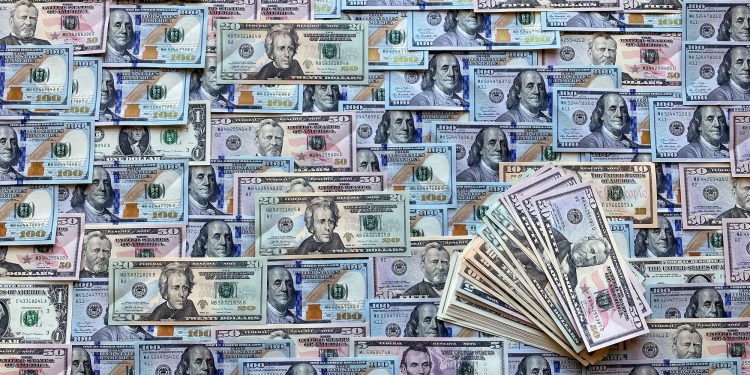As the US government inches closer to a government default – estimated to occur no later than August under present conditions – and bitter political divides frustrate attempts to legislate a solution, the world financial markets are increasingly on tenterhooks. With a looming financial crisis on the horizon in case of a default, the already ongoing crises in the banking, trade, agriculture, and energy sectors would snowball into something truly catastrophic.
This article will serve as a quick primer on what the debt ceiling is, the potential consequences of an American default on the global economy, and what the chances of such an occurrence are.
What is the Debt Ceiling?
The United States debt ceiling is a legal limit set by Congress on the amount of money the United States government can borrow to meet its expenses. It set a ceiling on the total national debt and was introduced in 1917 under the Second Liberty Bond Act. Since then, the limit has been significantly modified and raised many times.
The current United States debt ceiling is $31.4 trillion, which was reached on January 19 of this year. Since then, the United States Treasury has been resorting to various emergency measures, such as suspending pension payments.
According to the law, if the debt ceiling is reached, the United States government will be prohibited from borrowing more money. Since the United States government is currently in a massive deficit of $1.38 trillion, this would mean that the government would have to stop making payments to its staff, creditors, and social programmes until the Treasury has enough cash to pay down some of the debt. Currently, the US has the fourth largest debt-to-GDP ratio in the world, behind only Japan, Italy, and Greece.
What could happen if the US Federal Government defaults?
As the United States is the world’s largest economy by far and is intimately intertwined in the global financial, trade, and consumer markets, a government default would be a global economic catastrophe, at least on the scale of the 2008 Great Recession – probably larger.
Under the current situation, Treasury Secretary Janet Yellen has warned that emergency measures would run out on June 1, and the United States government would default by late July-early August. Such a situation would result in a worldwide economic meltdown, as banks would collapse and borrowing costs rise sharply.
The United States government would have to slash expenses equaling almost 5% of GDP, America’s credit rating would be downgraded sharply, and America would be unable to pay for its massive military – all while there is already a banking crisis going on, the global economy is struggling, and security concerns are rising.
Other estimated consequences would include almost 10% of economic activity in the States being halted, the loss of three million jobs, and the tipping of several developing countries into default as well. The US states with a high proportion of government spending would be hit especially hard, such as Washington DC, Alaska, Hawaii, and New Mexico.
How likely is this scenario?
Similar situations have occurred several times in the past, for example, in 2011, when President Obama made large concessions to Republican demands in order to avoid a similar situation. It is believed that then Vice-President Biden’s experience of that situation contributes to his current draconian stance. As of now, the question of default is mostly a political one – while the United States government has high debt, it is nowhere near unsustainable economically, and the government could easily avert this situation by raising the debt ceiling.
However, the question of whether it will do so is a political maelstrom, with the increasingly bitter polarisation between Democrats and Republicans meaning that Congress is in total legislative gridlock, and the passage of any legislation looks unlikely. While President Joe Biden and leaders of Congress held a meeting on Tuesday to discuss the issue, no solution was agreed upon, though the two sides did agree to hold another meeting later this week.
While Republicans desire massive cuts to federal spending in return for supporting new federal borrowing, President Biden stated that he would not allow the country’s credit reputation to be held hostage and that discussions over federal spending could only be held after the debt ceiling crisis was averted. The Republicans had passed a bill last month which aimed to slash federal expenses by $4.5 trillion, but amid fierce opposition from Democrats, who control the Senate and Presidency, the bill has near zero chances of becoming law.
With the presidential election coming up next year and America being in the middle of a cold civil war between Democrats and Republicans, financial markets worldwide are getting jittery. While business leaders have called for a compromise solution, the question of whether this will happen is currently up in the air, and one can only hope that cooler heads prevail, especially with the world economy already in a state of historical flux.

















